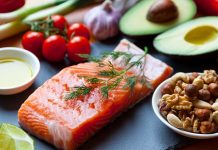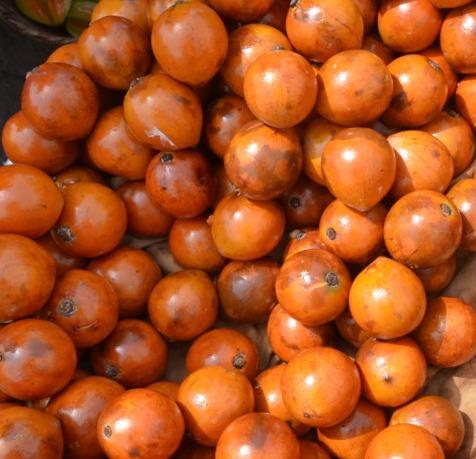(By Temitope Obayendo)
Mango is, no doubt, an appealing and appetising fruit. And that’s why many are so fond of it. But there is more to this juicy fruit than its look and taste: it is also loaded with health benefits. Scientists have reported that extracts of mango have hepatoprotective, anti-diabetic, anti-viral, anti-tumour, as well as gastroprotective properties, among other attributes.
Generally regarded as “the king of fruits” and scientifically called Mangifera indica, mango fruit is known as mangoro among the Yorubas, mangolo among the Ibos, ogwi among the Edos, and mangwaro among the Hausas.
The mango tree is believed to have originated from the sub-Himalayan plains of the Indian subcontinent. Botanically, this exotic fruit belongs to the Anacardiaceae family of plants, a family that also includes other numerous species of flowering plants.
Each mango fruit measures 5 to 15cms in length and about 4 to 10cms in width. It comes in different shapes and sizes depending on cultivar types. Its weight ranges from 150g to around 750g. Outer skin is smooth and is green in unripe mangoes but turns to golden yellow, bright yellow or orange-red when ripened, also depending upon the cultivar. Fresh mango season lasts from April until August.
Internally, mango flesh is juicy, orange-yellow in colour with numerous soft fibrils radiating from its centrally placed, flat, oval-shaped stone (enveloping a single large kidney-shaped seed). Its flavour is pleasant and rich, and tastes sweet with mild tartness. A high-quality mango fruit should feature no or very little fibre content and minimal sour taste. Mango seed (stone) may either have a single embryo or could be polyembryonic.
According to a study titled “Evaluation of aqueous stem bark extract of Mangifera indica on the liver of wistar rats”, published in the Asian Journal of Pharmaceutical Biological Research, 2012, laboratory results show that the histological sections of the liver showed normal tissue architecture, no form of cell distortion as the tissue architecture were well preserved.
The research which was conducted by Oyewo O. O., Onyije F. M ., Ashamu E. A , Akintude O. W . , and Ayeni O.J of the Department of Human Anatomy, Faculty of Basic Medical Sciences, College of Health Sciences, Ladoke Akintola University of Technology, Ogbomoso, Nigeria, examined the effects of mango extracts on the liver of wister rats.
Methodically, twenty Wister rats of both sexes (150-200g) were selected, and they were randomly divided into four groups of five each and tested as follows:
Group O- control (distilled water), Group A – M. indica extract (1.0 ml/kg, orally), Group B – M. indica extract (1.5 ml/kg, orally), Group C – M. indica extract (2.0 ml/kg, orally). Each ml contains 0.11g of the extract. After 21days of treatment, the livers were dissected for histological examination, and it was discovered that no form of distortion was found on the rats livers.
The researchers however noted that the report could be dose-dependent and may show effect in higher doses, therefore caution should be applied when using higher doses of M.indica extracts.
Other studies also corroborated that the leaf, root and stem bark of mango are widely used for medicines. Mangifera indica is used medicinally to treat ailments such as asthma, cough, diarrhea, dysentery, leucorrhoea, jaundice, pains, malaria, diabetes, infertility, lupus, prostatic hyperplasia, gastric disorders, mouth sores and tooth pain.
Nutritional contents of mango
Nutrition by the Numbers
One cup (225 gms contains the following. Percentages apply to daily value.
105 calories
76 per cent vitamin C (antioxidant and immune booster)
25 per cent vitamin A (antioxidant and vision)
11 per cent vitamin B6 plus other B vitamins (hormone production in brain and heart disease prevention)
9 per cent healthy probiotic fiber
9 per cent copper (copper is a co-factor for many vital enzymes plus production of red blood cells)
7 per cent potassium (to balance out our high sodium intake)
4 per cent magnesium
In a related, titled: “Phytochemical screening for active compounds in Mangifera indica leaves”, conducted by O.O. Aiyelaagbe and Paul M. Osamudiamen, the result revealed the presence of saponin, steroids, tannin, flavonoid, reducing sugars, cardiac glycosides and anthraquinone.
The report stated that Mangifera indica (Edward variety) from Ibadan, Oyo State were screened for the presence of chemically active compounds by standard methods, and the result confirmed that mangos are loaded with a lot of medicinal properties for human wellness.
According to the study, dried mango flowers, containing 15 per cent tannin serve as astringents in cases of diarrhoea, chronic dysentery and chronic urethritis. The bark contains mangiferine and is astringent when used against rheumatism and diphtheria. Leaf decoction when taken is a remedy for fever, chest pains, diarrhea, diabetes and hypertension. Extracts of bark, leaves, stem and unripe fruits are used as antibiotics for many ills.
Tannins are reported to exhibit antiviral, antibacterial, anti-tumor activities. It was also reported that certain tannins are able to inhibit HIV replication selectivity and also used as diuretic (Heslem, 1989). Plant tannin have been recognised for their pharmacological properties and are known to make trees and shrubs a difficult meal for many caterpillars (Heslem, 1989).
Cardiac glycosides are known to work by inhibiting the Na+/K+ pump. This causes an increase in the level of sodium ions in the myocytes, which then lead to a rise in the level of calcium ions. This inhibition increases the amount of Ca2+ ions available for contraction of the heart muscle, which improves cardiac output and reduces distension of the heart; thus, they are used in the treatment of congestive heart failure and cardiac arrhythmia. They are also used to strengthen a weakened heart and allow it to function more efficiently, though the dosage must be controlled carefully, since the therapeutic dose is close to the toxic dose (Denwick, 2002).
Plant steroids are known to be important for their cardiotonic activities; they possess insecticidal and anti-microbial properties. They are also used in nutrition, herbal medicine and cosmetics (Callow, 1936), they are routinely used in medicine because of their profound biological activities (Denwick, 2002).
In a recent chat with Dr. Olufunke Adeniji, of the Redeemer’s University, Redemption City, Mowe, on the health benefits of mango, she asserted that mango is a rich source of dietary fibre, with a trace of fat, sodium, zinc, copper and selenium.
Adeniji, who is a nutritionist, also noted that mango leaf and tree have medicinal properties, which could cure diabetes, gum inflammation and others.
According to her, mango contains calcium, phosphorous, potassium, vitamins A, B, E K and folate. It is high in vitamin C and high content of water and trace of ash.
Other health benefits of mango
1. Prevents cancer:
Research has shown antioxidant compounds in mango fruit have been found to protect against colon, breast, leukaemia and prostate cancers. These compounds include quercetin, isoquercitrin, astragalin, fisetin, gallic acid and methylgallat, as well as the abundant enzymes.
2. Lowers cholesterol:
The high levels of fibre, pectin and vitamin C help to lower serum cholesterol levels, specifically Low-Density Lipoprotein (the bad stuff).
3. Clears the Skin:
Can be used both internally and externally for the skin. Mangoes clear clogged pores and eliminate pimples.
4. Eye health:
One cup of sliced mangoes supplies 25 per cent of the needed daily value of vitamin A, which promotes good eyesight and prevents night blindness and dry eyes.
5. Alkalizes the whole body:
The tartaric acid, malic acid, and a trace of citric acid found in the fruit help to maintain the alkali reserve of the body.
6. Improved sex:
Mangos are a great source of vitamin E. Even though the popular connection between sex drive and vitamin E was originally created by a mistaken generalisation on rat studies, further research has shown balanced proper amounts (as from whole food) does help in this area.
7. Improves digestion:
Papayas are not the only fruit that contain enzymes for breaking down protein. There are several fruits, including mangoes, which have this healthful quality. The fibre in mangos also helps digestion and elimination.
8. Remedy for heat stroke
Juicing the fruit from green mango and mixing with water and a sweetener helps to cool down the body and prevent harm to the body. From an ayurvedic viewpoint, the reason people often get diuretic and exhausted when visiting equatorial climates is because the strong “sun energy” is burning up your body, particularly the muscles. The kidneys then become overloaded with the toxins from this process.
9. Boosts immune system
The generous amounts of vitamin C and vitamin A in mangoes, plus 25 different kinds of carotenoids keep your immune system healthy and strong.
References: Asian Journal of Pharmaceutical Biological Research, 2012; Home Journals Plant Sciences Research Volume 2











Abundant and vital info .
Thanks Pharma news
Sajith Kumar.G
This is good and fantastic news to many who enjoy mangoes.
Regards,
Richard